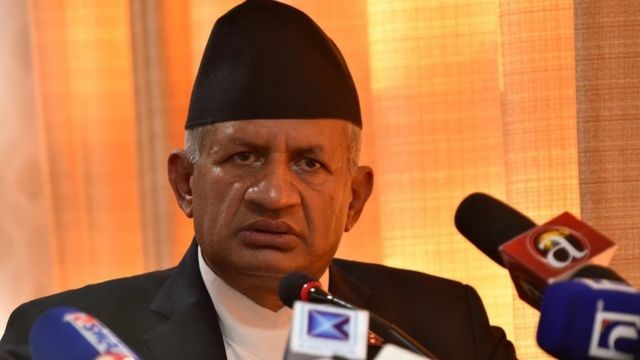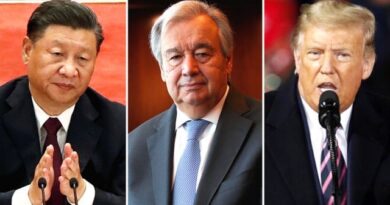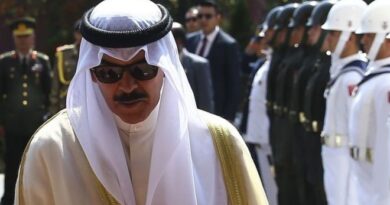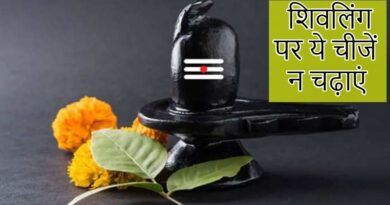How important is the visit of the Foreign Minister of Nepal to India?
At a time when Nepal’s parliament has been dissolved and the country’s system is in the hands of a caretaker government, what will be the importance of its foreign minister?
The same question has been asked in India’s diplomatic circles ever since Nepal Foreign Minister Pradeep Gowali is said to be visiting India.
On Sunday, Nepal’s Prime Minister KP Sharma Oli while addressing the Upper House of his Parliament, the National Assembly, said that he wants to bring the area of 370 square kilometers of Kalapani-Lipulekh and Limpiyadhura under Nepal.
He also said that he wants to do this only through dialogue with India.
Prime Minister Oli has indicated that on January 14, when Nepal’s Foreign Minister Pradeep Gyawali will visit India, he will raise this issue and will also hold talks to resolve it.
Try to reduce misconceptions
Oli’s statement is not considered good news for India as India has started taking steps to improve its relationship with Nepal since the end of last year.
From October to November last year, from the Indian side, ‘Research and Analysis Wing’ i.e. ‘RAW’ director Samant Kumar Goel, Foreign Secretary Harsh Vardhan Shringla and Indian Army Chief General MM Narwane visited Nepal in turn. And tried to reduce or eliminate the misconceptions that arose between the two countries.
By the way, Nepal’s Prime Minister KP Sharma Oli has always been seen as an opponent of India.
He clarified the situation in the upper house of his parliament and said, “Some people blame me only for the deteriorating relations with India. Should I take my lips off important issues?”
But at the same time he also said that he believes that the solution to all pending cases can be resolved through negotiations. He also claimed that things with India are moving in the direction of betterment.
Treaty of Sugauli
India has not yet reacted to Oli’s statement
Foreign affairs experts in India feel that India does not even need to react in view of the current political developments in Nepal because Nepal’s Parliament is currently dissolved and Oli is only the acting Prime Minister.
According to senior journalist Manoj Joshi, who is a foreign affairs expert, “What Oli said in the upper house of his Parliament is his political compulsion. It is not necessary that India should react to it.”
According to Joshi, India has always been an important issue in Nepal’s politics. Now what Oli is saying does not matter much, while the case of dissolution of Parliament is pending in the Supreme Court of Nepal.
Manoj Joshi says that the screw is stuck between the two countries regarding the Treaty of Sugauli. This area is a kind of tricolor of India-Nepal and China in Kalapani, Lipulekh and Limpiyadhura. This area comes in Pithoragarh in Uttarakhand.
Nepal and the outskirts of India
According to the Treaty of Sugauli in the year 1816, screws have been implicated in the ‘water-shed’ of the Kali river, which is considered as the border of Nepal and India.
The treaty was signed by the king of Britain and Nepal on behalf of India. Now Nepal says that from 1816 till 1962 Nepal had control of this area.
India claims that it closed this area after the war of 1962 with China.
In May last year, India announced the opening of this route so that those travelling to Kailash Mansarovar can get ease.
Soon after this announcement, Nepal released its new map in which Kalapani is highlighted as an integral part of Nepal.
After this, relations between the two countries started deteriorating and Nepal’s Prime Minister Oli also continued to target India.
Visit of Foreign Minister of Nepal
At once, relations deteriorated so much that tensions began to form on the border between the two countries.
Senior journalist Yuvraj Ghimire, who is present in Kathmandu, the capital of Nepal, says that there is a joint commission between India and Nepal on this matter whose meetings are held regularly. They say that only bilateral talks on this issue can reduce the friction between the two countries. That is why this visit by the Foreign Minister of Nepal is important.
Ghimire says that the Treaty of Sugauli is clearly defined. So there should be no problem in implementing it.
But in India, there is not as much buzz in diplomatic circles regarding the visit of the Foreign Minister of Nepal.
Strategic and foreign affairs experts say that before the bilateral talks with any country, the government of Nepal and the Prime Minister gaining the trust of their own parliament is the biggest test of authority. According to him, currently, KP Sharma Oli does not have this right.
Supreme Court of Nepal
Nepal’s politics has been under cloud for the past few months.
The matter has reached the court and now only the Supreme Court will decide whether Prime Minister KP Sharma Oli’s recommendation to dissolve the Parliament was anti-constitution or not? The Supreme Court will also decide whether there will be re-election in Nepal in April and May, which Oli had recommended while dissolving the Parliament.
Due to the latest developments, there is a lot of tussle within the Communist Party of Nepal because on 20 December, as soon as Oli sent a proposal to dissolve the Parliament to President Bidya Devi Bhandari, the party replaced Oli with the leadership of Madhav Nepal and Pushp Kamal handed over to Dahal ‘Prachanda’.
Political analysts in Nepal believe that it is not yet clear what the political future of the country will be because neither of the two factions of the Communist Party of Nepal has written before the Election Commission that the party is broken has gone.
Nepal politics
However, Oli and his rival camp have definitely submitted their claim on the party’s name and election symbol.
Jitendra Raut, editor of BBC Nepali Service present in Kathmandu, says that the picture is not clear in Nepal yet, while Bamdev Gautam, an important leader of the Communist Party of Nepal, is trying to get a compromise between the two factions.
Speaking to the BBC, Professor Pushp Adhikari of Political Science at Tribhuvan University in Kathmandu said that the constitution which has been called for in Nepal’s politics these days appears to have ‘no end or no end’.
He says that the Constitution of which KP Sharma Oli was also talking about was the 1990 Constitution under which many rights of the Prime Minister were clearly mentioned.
Says Pushp Adhikari, “In the new constitution, the Prime Minister has no right to recommend dissolution of Parliament.”
New chapter of political crisis
But while addressing the Upper House of Nepal on Sunday, Prime Minister Oli said that dissolution of Parliament is a political decision which has nothing to do with the Supreme Court. Amid the boycott of anti-faction MPs, he asked, “Doesn’t the Prime Minister have too much authority; he cannot even recommend dissolution of Parliament?”
Analysts feel that even if the elections are held in the Communist Party of Nepal, despite the current situation, both Oli and his rival faction within the party could face huge losses.
While the Nepali Congress and other parties will try to take full advantage of it.
Experts also believe that even if the Supreme Court of Nepal has decided to restore the Parliament, it will open a new chapter of political crisis in the country, which Oli has already expressed.
It is the motion of no confidence against the Prime Minister and impeachment against the President. He says that earlier the Communist Party of Nepal has impeached against the Chief Justice of the Supreme Court, so this apprehension has arisen in political circles.




